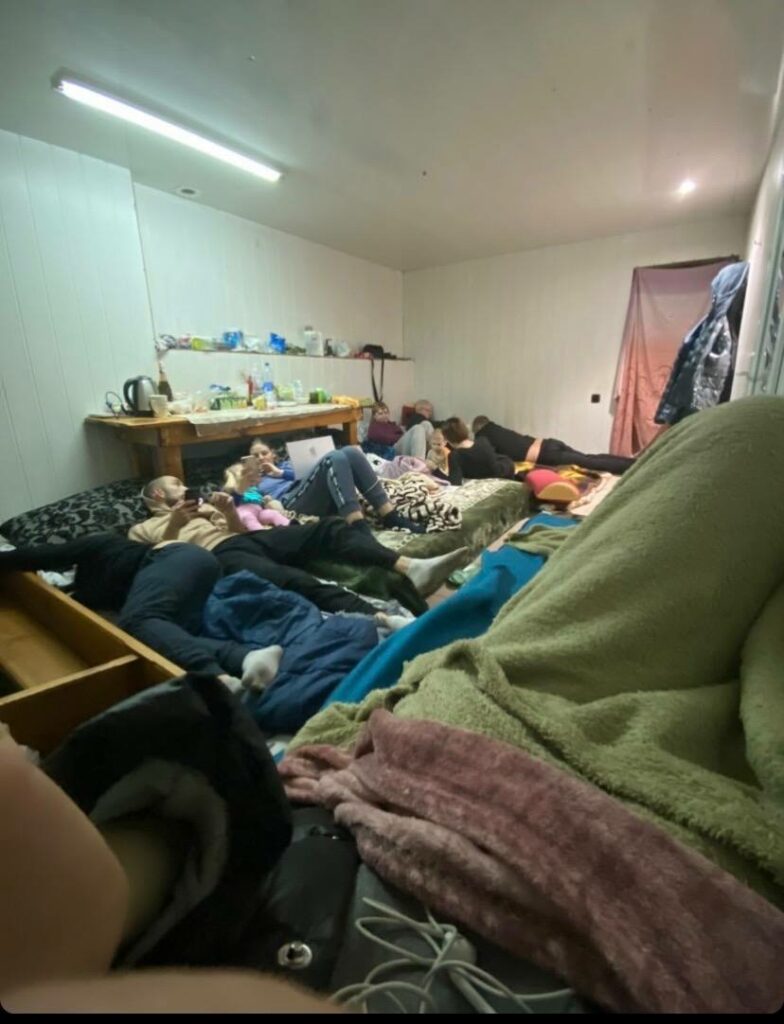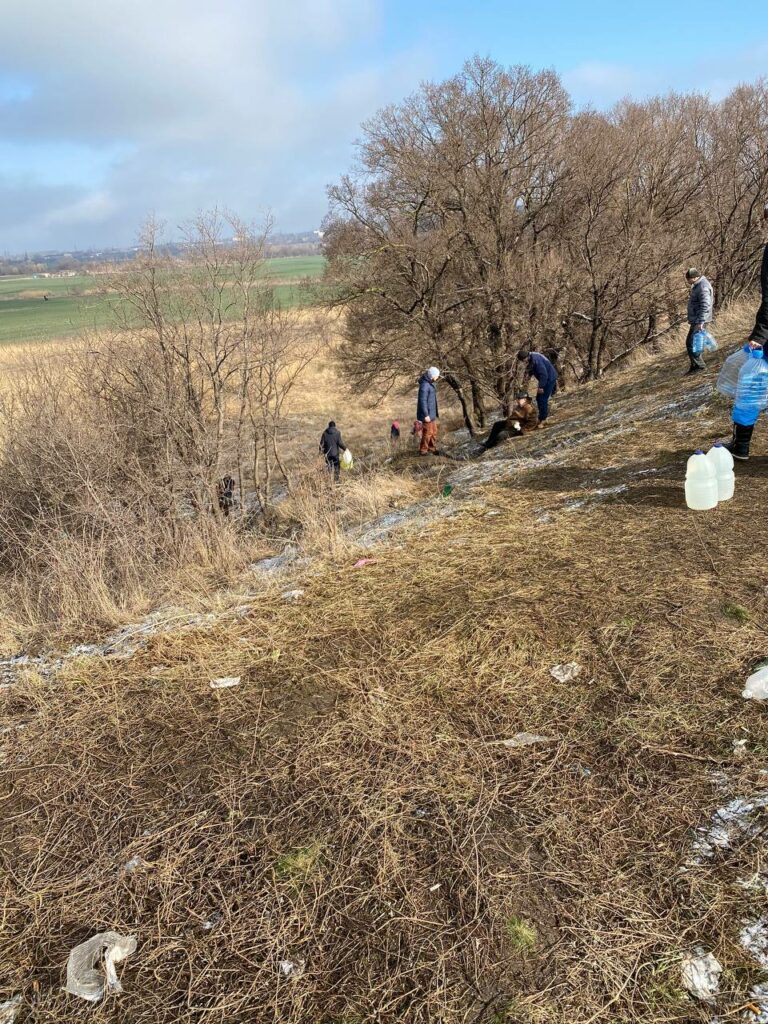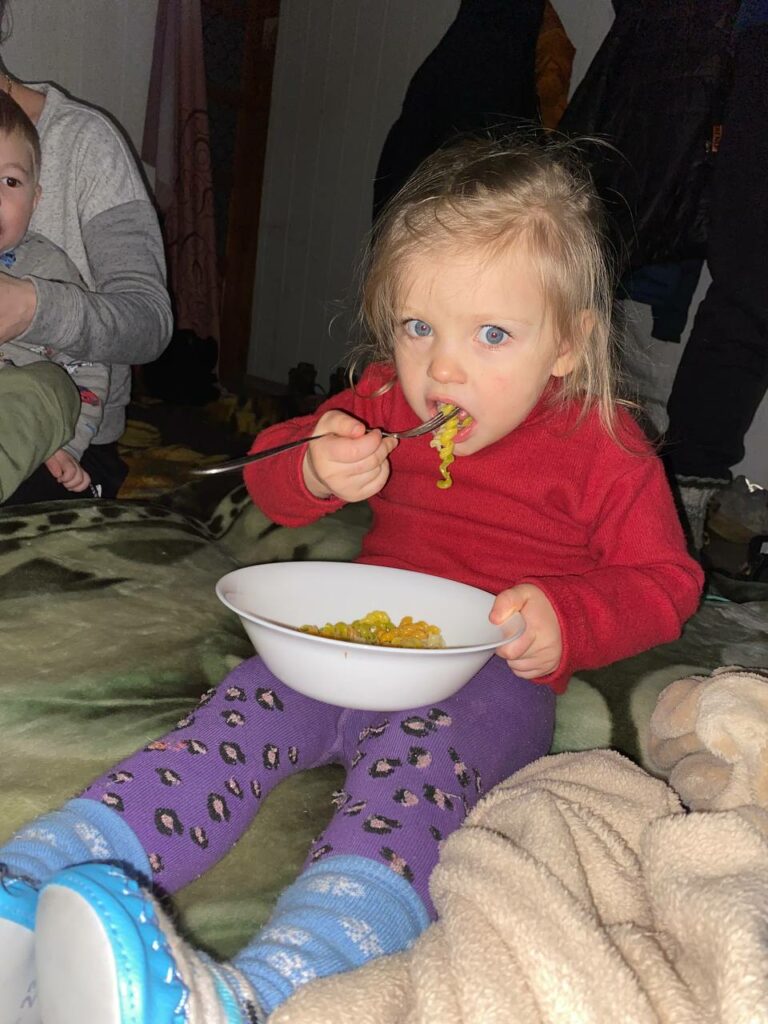A year before the war, city mayor Vadym Boychenko said that Mariupol’s goal was to become a national leader of cultural and economic regeneration. He was sure that the city could be a model for the east of Ukraine and a source of inspiration for all of Ukraine.
The results of the five-year work of local self-government were the reason for saying so. Back in 2015, it was a gray area, populated between two huge factories. And then they decided to make a leap and managed to make Mariupol the most transparent city in the country. This immediately brought 200 million euros of investment, because it is quite possible in modern world to attract large funds for development, if an investor understands how effectively the city uses its own financial resources, manages its own revenues and expenditures.
They wanted to create the largest water park in Ukraine and the first Disneyland there. They expanded the city infrastructure, developed IT, involved young people in sports, and taught people how to effectively manage housing.
Of course, the Kremlin did not want people from non-government-controlled areas to change their idea of the real opportunities in Ukraine.
This young girl’s name is Polina. Together with her husband and two-year-old daughter, she escaped from Mariupol after 21 days of survival under constant shelling. The family believed in their city so much that they even bought an apartment before the full-scale Russian invasion. Learn firsthand what Polina’s life was like under the bombings, how she managed to escape and what she and her family are doing now.
“I’ve been living in Mariupol since 2019. I first came there in 2017, and my husband’s from there. By the way, if you compare Mariupol of 2017, which was the most terrible city I had seen, and what it has recently become, these are two completely different cities, poles apart.
On February 20, I returned to Mariupol from my home in Kakhovka. Everyone said: “Where are you going?!”, but we were a million percent sure that nothing would happen to the city. First of all, so much money was invested in Mariupol that we thought something like, “Why, it has just become so beautiful. Can they really start bombing?” Secondly, factories. “How can they bomb Mariupol if there are factories there, no one will leave it,” we thought.

When it all started, a lot of friends told us to go, offered to take us out, but we were sure that everything would be over in three days, actually, that’s why we didn’t leave.
Moreover, we recently bought an apartment. We’d been dreaming of our own housing for a long time, as we had to move from apartment to apartment quite often, and it is difficult with a child. We searched for it for a very long time, because I had a particular area and a three-room apartment in mind, and nothing else. So when we found a suitable one, we didn’t doubt about the purchase.
I was not the only one who was sure everything would be fine. Our close friend is in the army, and we always thought that if there was any hint of war, he would definitely tell us. On the night of February 23, he was at our house. He said: “No, nothing will happen, all our commanders are given vacations, everything will be fine.”
We went to bed, and on the morning of the 24th, I woke up and saw that my husband was looking out the window, and our daughter Sasha was crying. I asked him: “Are they shooting?” “Looks like that,” he answered. I was not very scared, because during the war years we sometimes heard the sounds of shots and explosions. It was not surprising to us.
I lulled my daughter, opened Telegram. My mother wrote from Kakhovka that they heard explosions. I read the news and realized that explosions were everywhere.
My husband ran to the store to buy food and then went to check where the nearest shelters were. A friend came, we cried together, and we didn’t know what to do. I started packing some things, Sasha slept for longer than usual. Later, my husband called and told me to go to our relatives, because they lived in a private house and had a good basement. We still thought that Mariupol would not be bombed.
While I was sitting on the couch and crying, my husband was carrying everything necessary to the basement. The basement was very good: there was a toilet and light. From the first night we slept only there, I couldn’t sleep upstairs. I’d say everything was fine at first: there was light, water, gas. During the day, we went upstairs, cooked, and as soon as we heard something flying, we ran downstairs. By the way, we couldn’t hear any air raid alarms in our area.

Every day we went to our apartment to feed the cats, because we didn’t take them at first – we hoped we’d be back soon.
First, light disappeared – they hit DTEK. A few days later, water disappeared, because pumps do not work without light. The worst thing was when gas disappeared, because we could use gas to cook, heat water, and bathe children. There were 11 of us in the basement, including two two-year-old children. We understood that we had to cook over a fire. Men chopped firewood, someone tried to go and get water (we were lucky that there was a well near the house). It was impossible to drink, but we had no choice. We were also lucky that it snowed and it was cold, so food was preserved longer. We collected snow in an iron barrel and put meat there. A neighbor had chickens. We gave him food scraps for his chickens, and he gave us eggs, once he even brought a chicken. That’s how we survived.

At some point, the fear passed and that was the worst part. We hid the kids, but we stopped hiding ourselves. There was no communication, we didn’t understand what was happening in the country, and it felt as if the whole world had forgotten about us. Thoughts crept into our minds that no one cared about us and everyone was oblivious of us.

Every day we thought it was about to end. We thought that a ceasefire would come on March 8.
On March 8, when everyone was waiting for a ceasefire, planes flew and airstrikes began. The “fun” started. It was very scary. Then there were three explosions: at a plant near us, at Azovstal and on the left bank, at the Illich Iron & Steel Works. After that, we went out less often, because it was very scary.
I think March 14 was the last time we went outside. That day we learned about a location in the city where a cell phone signal could be caught. My friend and I decided to run there and call our relatives, because for two weeks no one knew whether we were alive or not. There were about twenty people there. Everyone held a phone in an outstretched hand in order to catch at least 1% network coverage, to make a call, to say at least something. Suddenly, a plane flew overhead and explosions followed. We had to run back, and we failed to call our relatives. I was upset, I wanted to go there again after a while, but my husband did not let me go and went there himself. He managed to call his mother. It was an incredible feeling. We never got in touch again.
Hell began on March 14. We didn’t even go upstairs from the basement, only one of the men ran out to cook food over a fire. And on the last day, we just cooked in the basement, where we had a gas stove in case we couldn’t leave our basement.
On the night of March 14 to 15, around 2 a.m., there was an explosion and our windows shattered into small pieces. I was trembling; I thought we would surely die if we didn’t leave the basement. On the morning of March 16, we heard someone shouting into the basement hole. It was my husband’s parents. They came to ask how we were doing. Besides, Sasha fell ill. It was very cold in the basement; everyone wore three sweaters, two pairs of pants, four pairs of socks. Just then, people came to pick up a friend who stayed with us in the basement. They advised to leave and said it was real and more or less safe then.
Only my husband’s parents had a car. When they ran home to get the car, the area was shelled. They managed to run to the entrance, but the woman who was running after them was torn in the blast. Then we had no doubts.
We packed some things, got into the car and drove off. Our friend was with us. When we drove up to her house to pick up her mother, snipers were already there. It was hot; there were street fights. There was no time to stop. We drove past the drama theater, and in 10 minutes it was blown up.

We drove, cried and prayed. It took us four hours to drive fifteen kilometers; we had only enough gas to get to the nearest village. And finally we got to his relatives. When they gave us borsch and bread, we burst into tears. “It turns out that normal life exists.” We became so accustomed to living in terrible conditions that no other life seemed to exist. We could not sleep peacefully in a bed for a long time; we wanted to hide in the basement from fear. We are still struggling with the consequences of our experience.
We planned to get from Mangush to Kakhovka. We spent three days looking for a car at least to Berdyansk. In the end we were lucky that our acquaintance went there. His car was completely destroyed, it came under fire and there was a cardboard instead of the back window. We were barely driving, and he kept opening the door to see what was happening behind.
At the checkpoint on the road out of Mariupol, orcs wanted to take the car from us. They did not care that there was a baby in it. As a result, they left the car to us, but said that other military could easily take it away at the next checkpoint.
We reached Berdyansk, where my father had come, and set off for Kakhovka. On the way we passed 15-20 Russian checkpoints. Some soldiers smiled at us, some gave our daughter cookies, but we threw them away. When we approached Melitopol, a soldier at one of the checkpoints pointed a weapon at Sasha while she was looking at him. In Melitopol, they took my husband out of the car and began telling us that, but for “Azov”, everything would be fine in the country, that they wanted to save us.
We reached the occupied Kakhovka. At that time everything was still more or less working. We understood that it was impossible to stay there either. You can’t just walk on the street; you have to clear your phone of suspicious content, because if they check it and find something, they will immediately take you to the basement and abuse you. Since my mother was deputy mayor, I never went outside alone.
At that time, our friends were in Germany, so we decided to go to them. There was no “green corridor” from Kakhovka, people traveled at their own peril and risk. Someone was shot, someone was wounded. It is very risky, you don’t know if you’ll pass or not. But we decided to go so as not to traumatize our daughter with the sounds of explosions and sirens, because she was hiding under the table all the time, begging to go to the basement.
We had to leave through Crimea. There was no other way from Kakhovka. Our life was the priority.
From Crimea we went to Georgia, from there to Turkey, and from Turkey we were not allowed to go to Germany, because my husband did not have a biometric passport. We were in Turkey for two days, found a bus to Romania, stayed there for three days and went to Munich. Instead of three days, we travelled ten.

Now we live in a German family. They are wonderful people who help us with everything. Neighbors brought a mountain of toys for Sasha. My husband plays in the team and coaches Ukrainian children in football, we are waiting for the start of integration courses.
We miss Mariupol very much. A home is a home. Our daughter often asks where her friend is, where her scooter is. You can go back, but there is no life there. The prices there are crazy. For example, a small bun, which used to cost 70 kopecks, now costs 20 hryvnias. People trade what they managed to loot at the beginning of the war.
I don’t even know what has happened to our apartment. I know that the balcony is gone. Our district is more or less intact, but every house in the city is damaged. We did not take anything from the apartment, only a laptop so that Sasha could watch cartoons. The clothes we took to the basement smelled like a campfire, so it was easier to throw them away.
We will return to Mariupol only if it is under the Ukrainian flag, and if not, then maybe someday we will come to take things away. In the meantime, we will try to work and arrange a new life here.
Lada Verbytska, Odesa
7.07.2022
Article is prepared within the project “Countering Disinformation in Southern and Eastern Ukraine” funded by the European Union.



